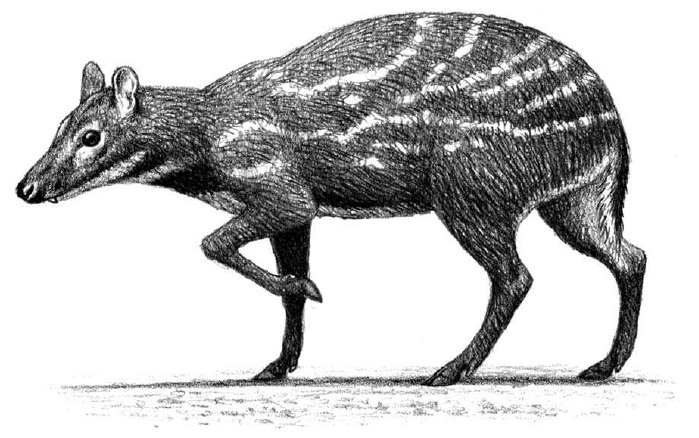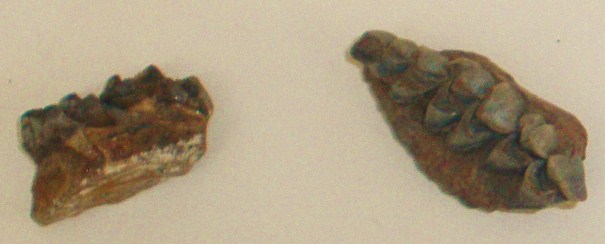Dorcatherium Minus on:
[Wikipedia]
[Google]
[Amazon]

 ''Dorcatherium'' is an extinct
''Dorcatherium'' is an extinct

genus
Genus ( plural genera ) is a taxonomic rank used in the biological classification of living and fossil organisms as well as viruses. In the hierarchy of biological classification, genus comes above species and below family. In binomial n ...
of tragulid ruminant which existed in Europe
Europe is a large peninsula conventionally considered a continent in its own right because of its great physical size and the weight of its history and traditions. Europe is also considered a subcontinent of Eurasia and it is located enti ...
, East Africa
East Africa, Eastern Africa, or East of Africa, is the eastern subregion of the African continent. In the United Nations Statistics Division scheme of geographic regions, 10-11-(16*) territories make up Eastern Africa:
Due to the histori ...
and the Siwaliks
The Sivalik Hills, also known as the Shivalik Hills and Churia Hills, are a mountain range of the outer Himalayas that stretches over about from the Indus River eastwards close to the Brahmaputra River, spanning the northern parts of the Indian ...
during the Miocene
The Miocene ( ) is the first geological epoch of the Neogene Period and extends from about (Ma). The Miocene was named by Scottish geologist Charles Lyell; the name comes from the Greek words (', "less") and (', "new") and means "less recent" ...
and Pliocene
The Pliocene ( ; also Pleiocene) is the epoch in the geologic time scale that extends from 5.333 million to 2.58Chevrotains
Miocene even-toed ungulates
Pliocene even-toed ungulates
Cenozoic mammals of Africa
Cenozoic mammals of Asia
Cenozoic mammals of Europe
Miocene genus first appearances
Pliocene extinctions
Fossil taxa described in 1833
Prehistoric even-toed ungulate genera
{{paleo-eventoedungulate-stub